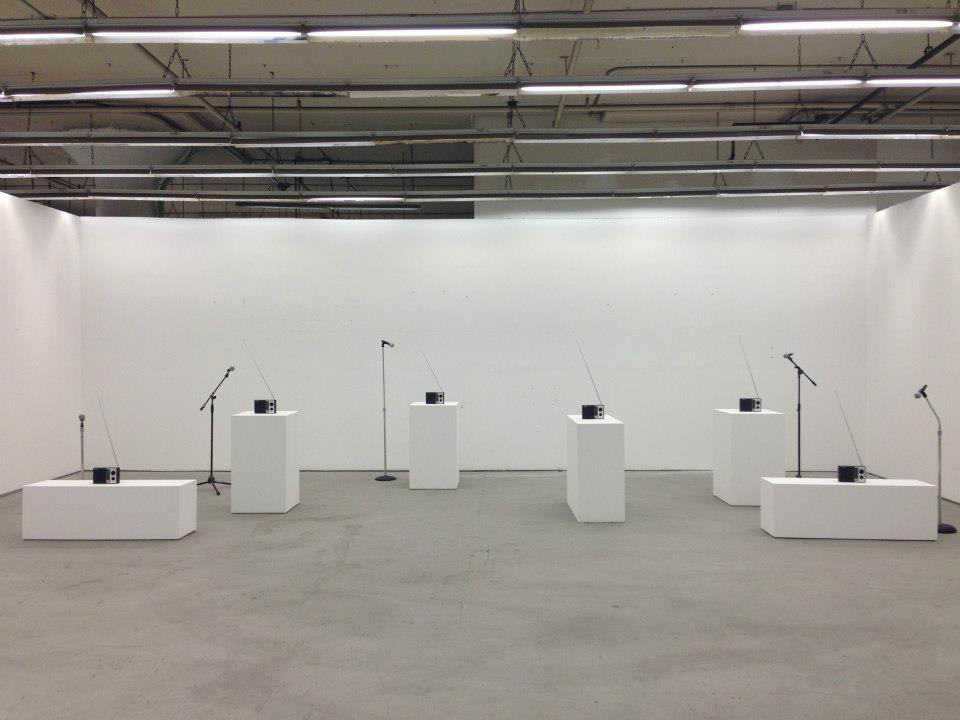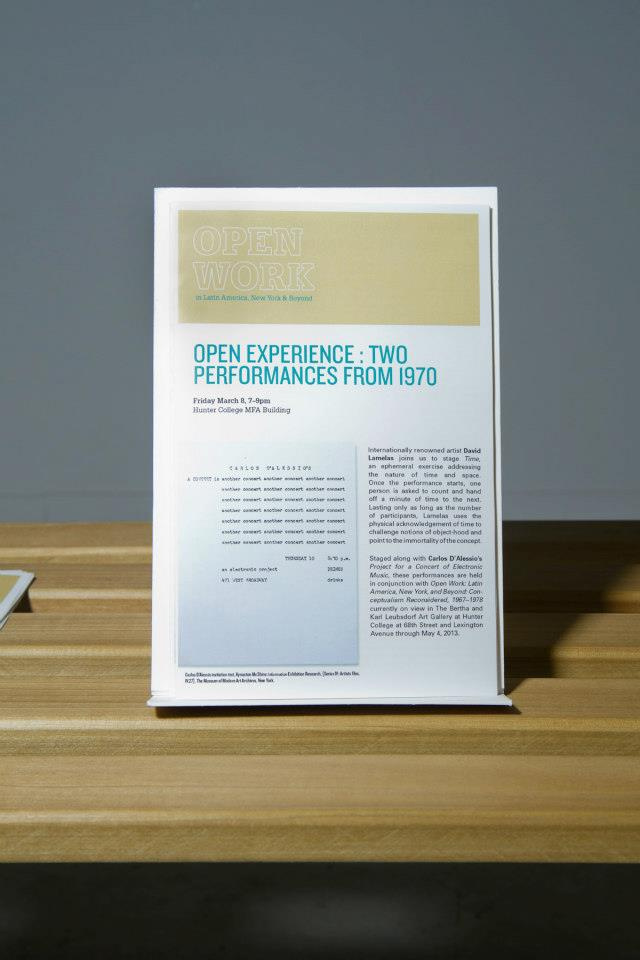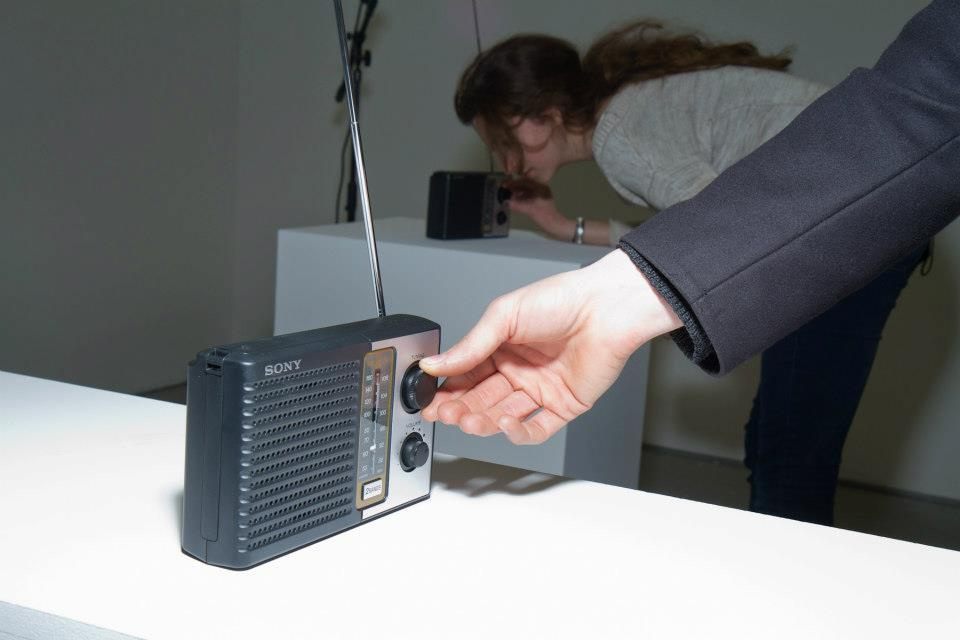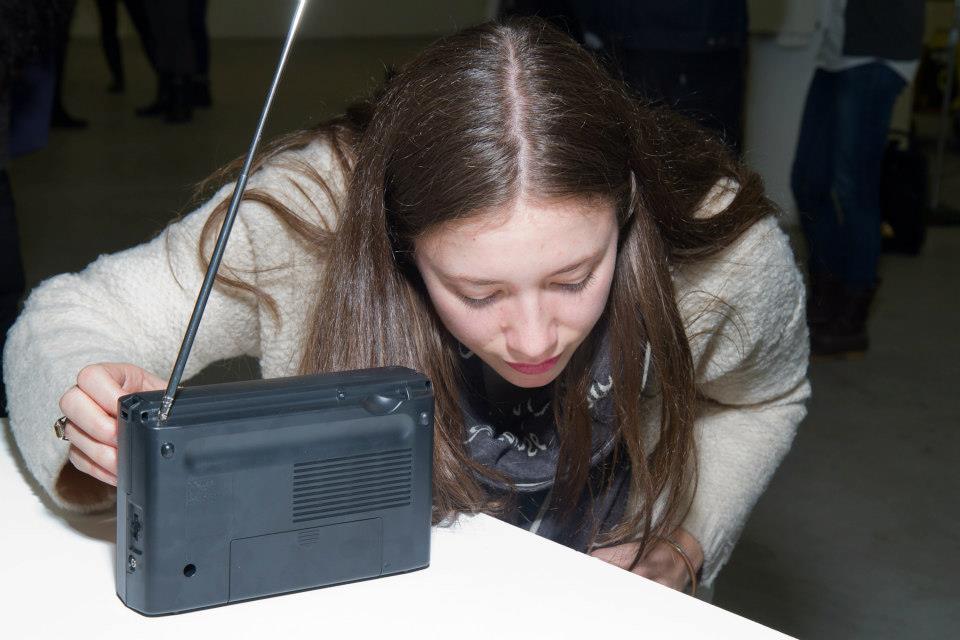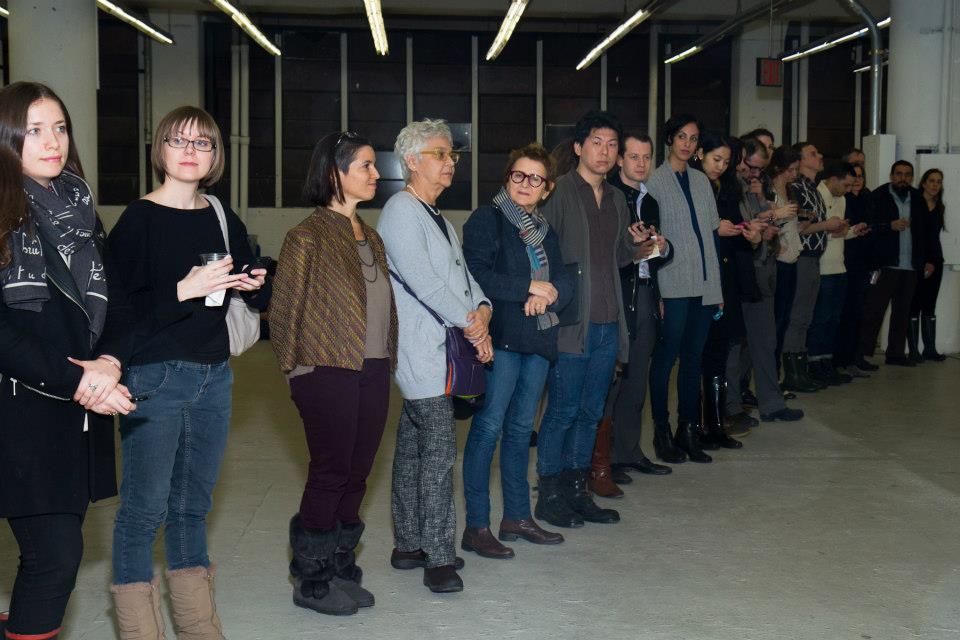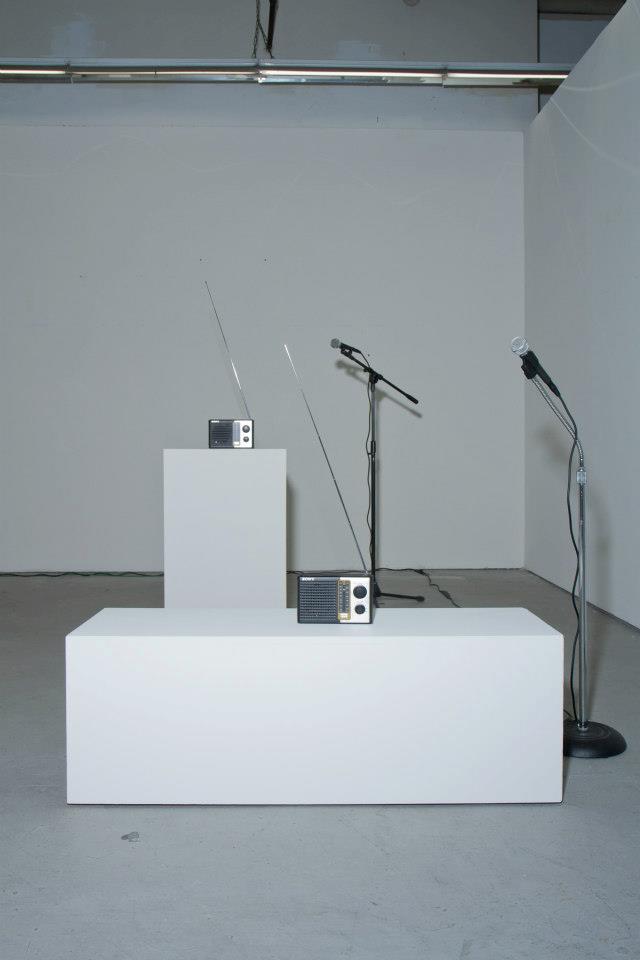Hunter College MFA Building
March 8, 2013
Organized with Emily Bates
Internationally renowned artist David Lamelas will stage Time, an ephemeral exercise addressing the nature of time and space. Once the performance starts, one person is asked to count and hand off a minute of time to the next. Lasting only as long as the number of participants, Lamelas uses the physical acknowledgement of time to challenge notions of object-hood and point to the immortality of the concept.
Argentinian composer Carlos D'Alessio's contribution to avant-garde art activity in 1970s New York remains mostly lost in obscurity. However, his Project for a Concert of Electronic Music, included in The Museum of Modern Art’s seminal Information exhibition catalogue, relies on circuits of action to produce new content, exemplifying the participatory experimentation of the period. The performance gathers a party to create an impromptu piece of sound art by recording both the sound of the guests freely manipulating transistor radios together with the sounds of the chatter of the crowd itself, played back in a concert.
Staged in conjunction with Open Work: Latin America, New York, and Beyond: Conceptualism Reconsidered, 1967–1978 at The Bertha and Karl Leubsdorf Art Gallery at Hunter College.
